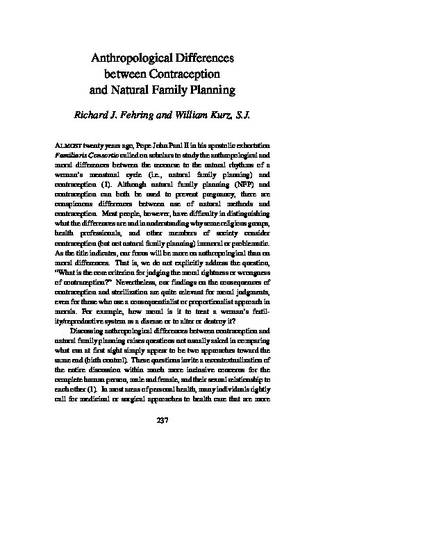
Almost twenty years ago, Pope John Paul II in his apostolic exhortation Familiaris Consortio called on scholars to study the anthropological and moral differences between the recourse to the natural rhythms of a woman’s menstrual cycle (i.e., natural family planning) and contraception (1). Although natural family planning (NFP) and contraception can both be used to prevent pregnancy, there are conspicuous differences between use of natural methods and contraception. Most people, however, have difficulty in distinguishing what the differences are and in understanding why some religious groups, health professionals, and other members of society consider contraception (but not natural family planning) immoral or problematic. As the title indicates, our focus will be more on anthropological than on moral differences. That is, we do not explicitly address the question, “What is the core criterion for judging the moral rightness or wrongness of contraception?” Nevertheless, our findings on the consequences of contraception and sterilization are quite relevant for moral judgments, even for those who use a consequentialist or proportionalist approach in morals. For example, how moral is it to treat a woman’s fertility/reproductive system as a disease or to alter or destroy it?
Available at: http://works.bepress.com/richard_fehring/81/

Published version. Life and Learning, Vol. X (2000): 237-264. Publisher Link. © 2000 University Faculty for Life, Inc. Used with permission.